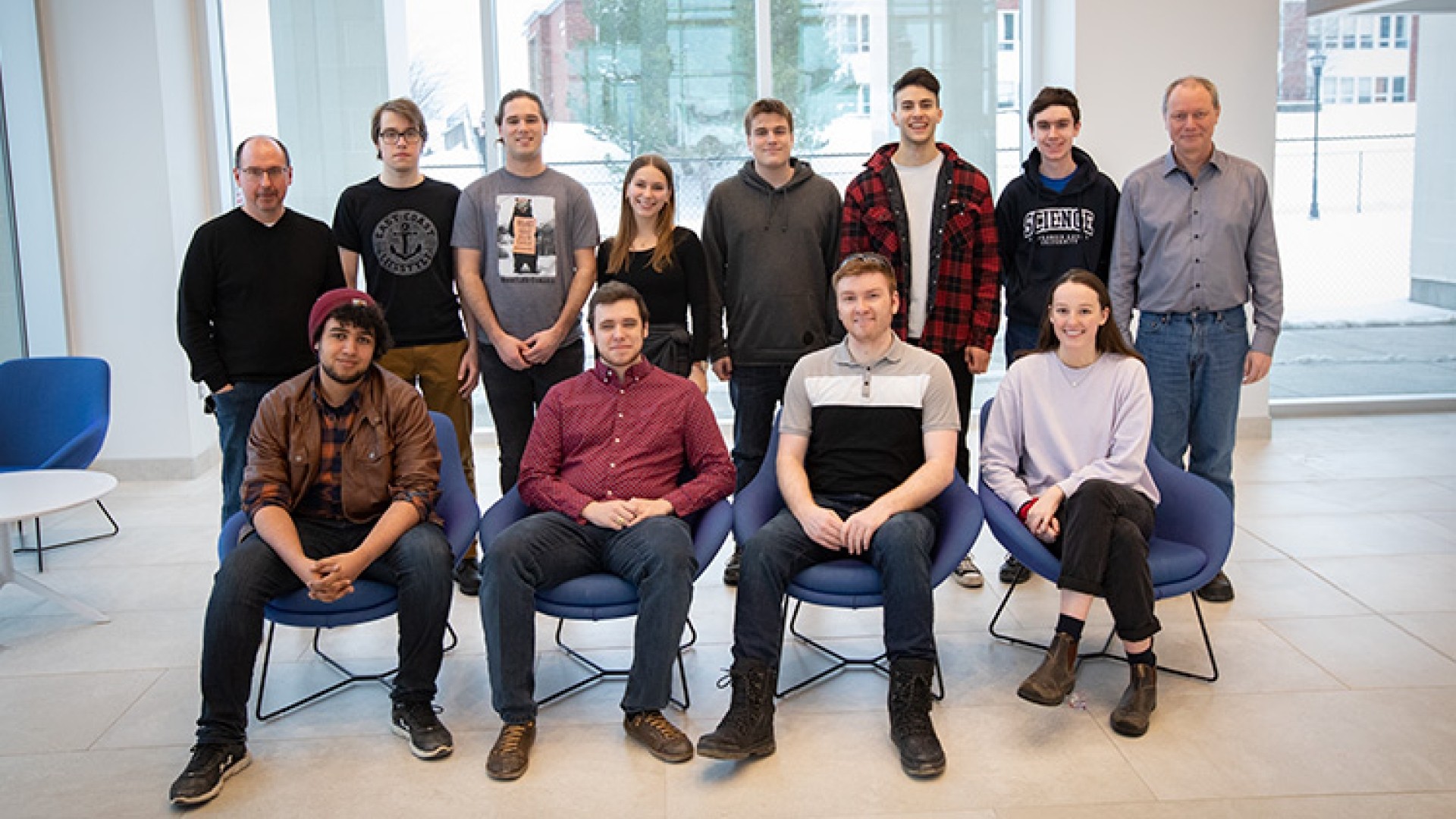
When a group of StFX physics students started planning an Atlantic undergraduate physics and astronomy conference, they decided to aim big—and the results have been more than impressive.
The students have attracted 2018 Nobel Prize winner Donna Strickland; NASA engineer and advocate for diversity and inclusion in science, Renee Horton; StFX alumnus Allan H. MacDonald, winner of the Wolf Prize and the Herzberg Medal and professor at University of Texas, Austin; and Dalhousie University professor Jesse Maassen, to deliver keynote lectures when StFX hosts the Atlantic Undergraduate Physics and Astronomy Conference (AUPAC) from January 31-February 2, 2020.
The talks by all invited speakers are open to the public.
“It’s just amazing what they have accomplished,” says Dr. Peter Marzlin, faculty advisor and StFX physics professor, who praised the students who he says have organized and looked after mostly every detail for the conference.
“This is a conference that happens every year. This is the first Nobel Laureate that has showed up to speak. It’s really amazing. We’re really proud of the students,” said StFX physics professor Dr. Peter Poole, a Science Atlantic committee member.
StFX students and conference co-chairs Dean Eaton and Bryan Canam say they were thrilled, and a little surprised, they were able to attract each of the high-profile speakers they invited.
“We wanted to set the bar high,” says Mr. Eaton.
“These are the ones we were shooting for. We weren’t expecting them,” added Mr. Canam, who says they are much looking forward to the talks. “We’re more than pleased.”
WIDE APPEAL
Fellow students and conference committee members Thomas Hujon and Noah Tessema say they are looking forward to both the conference—a student organized event under Science Atlantic that looks to publicize and advertise research of many disciplines in physics and astronomy to undergraduate students in the Atlantic Provinces—as well as the chance to hear from the keynote speakers.
“These people are in the top rank of their professions,” says Mr. Hujon.
Mr. Tessema says their addresses should interest everyone, not just those with a physics background.
“There is always something to learn from people who have reached a certain success in life,” he says, noting it is inspiring to hear people speak passionately about their interests.
“You get an impression of what it takes for someone to be particularly good at what they do.”
KEYNOTE LECTURES
The keynote addresses are scheduled to take place:
* Friday, Jan. 31: 7 p.m. SCHW 110, keynote speaker Jesse Maassen
* Saturday, Feb. 1, 11 a.m. SCHW 110, keynote speaker Allan MacDonald
* Saturday, Feb. 1, 6:30 p.m. SCHW 110, keynote speaker Donna Strickland
* Sunday, Feb. 2, 11 a.m., SCHW 110, keynote speaker Renee Horton
SHOWCASE STUDENT WORK
The organizers are expecting about 105 participants from universities across Atlantic Canada and elsewhere, with 32 students slated to present their work.
Over the weekend, undergraduate students will present talks on areas from particle physics and cosmology to atomic and solid state physics. There will also be other events such as a graduate fair, where graduate programs from across Canada advertise their programs to prospective students.
The StFX student organizers say they started planning the conference in February 2018, and that almost every senior student in the physics department is involved in its organization. In planning the conference, they say they’ve had to learn new skills almost every three to four weeks, from coding for their website to delegating.
They were also successful in securing sponsors, including their proposal to StFX’s Frank McKenna Centre for Leadership for help in sponsoring the keynote speakers.
The undergraduate conference, they say, will be a great opportunity for students to showcase their own research, to attend a grad fair to learn about future opportunities, and to network and learn from students and faculty from other institutions.
Of course, interacting with the keynote speakers, people at the top of their profession, will be a key benefit.
“It’s huge, the significance of meeting and networking with the speakers,” the students say.
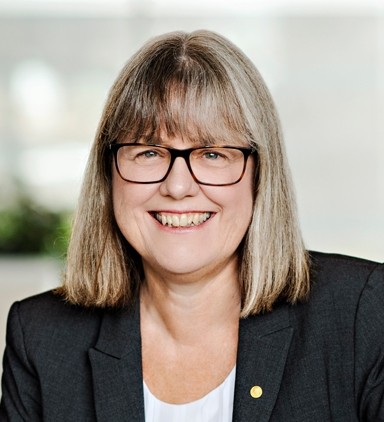
Donna Strickland is a professor in the Department of Physics and Astronomy at the University of Waterloo and is one of the recipients of the Nobel Prize in Physics 2018 for developing chirped pulse amplification with Gérard Mourou, her PhD supervisor at the time. They published this Nobel-winning research in 1985 when Strickland was a PhD student at the University of Rochester in New York state. Together they paved the way toward the most intense laser pulses ever created. The research has several applications today in industry and medicine — including the cutting of a patient’s cornea in laser eye surgery, and the machining of small glass parts for use in cell phones. Strickland was a research associate at the National Research Council Canada, a physicist at Lawrence Livermore National Laboratory and a member of technical staff at Princeton University. In 1997, she joined the University of Waterloo, where her ultrafast laser group develops high-intensity laser systems for nonlinear optics investigations. She is a recipient of a Sloan Research Fellowship, a Premier’s Research Excellence Award and a Cottrell Scholar Award. She received the Rochester Distinguished Scholar Award and the Eastman Medal from the University of Rochester. Strickland served as the president of the Optical Society (OSA) in 2013 and is a fellow of OSA, the Royal Society of Canada, and SPIE (International Society for Optics and Photonics). She is an honorary fellow of the Canadian Academy of Engineering as well as the Institute of Physics. She received the Golden Plate Award from the Academy of Achievement, is in the International Women’s Forum Hall of Fame, and holds numerous honorary doctorates. Strickland earned a PhD in optics from the University of Rochester and a B.Eng. from McMaster University.
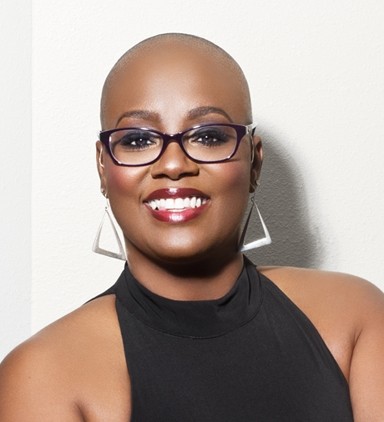
Dr. K. Renee Horton is a native of Baton Rouge, Louisiana and is a graduate of Louisiana State University and with a PhD in Material Science with a concentration in physics from the University of Alabama, as the first African American to receive this degree. In her day job, she serves as a NASA Space Launch System (SLS) Quality Engineer at Michoud Assembly Facility (MAF) in New Orleans. Throughout her academic career, she has received numerous accolades and awards including the Black Engineer of the Year Trailblazer Award in 2011. She was named a 2019 Louisianian of the Year and is honoured in a group of nine individuals who stand out in their professions, give back and represent what’s best about Louisiana. She is an advocate for diversity and inclusion in Science, Technology, Engineering and Mathematics (STEM), and works diligently in the community for STEM education and STEM outreach. She believes in changing the face of STEM. She is the founder of Unapologetically Being, Inc., a nonprofit for advocacy and mentoring in STEM. She is an international inspirational speaker who brings her personal story, expertise, and personality to her award-winning presentations. Dr. Horton has spoken all over the world including South Africa, Brazil, South Korea, Canada, Jamaica and Mexico. She has served as an invited speaker for the first International Women and Girls Day at the United Nations, Dow Chemical Black History Speaker, the National Air and Space Museum, Essence Power Stage, LSU Engineering commencement, numerous youth groups, to name a few. In 2016, she was elected President of the National Society of Black Physicists (NSBP) as the second woman to hold the office. She has served the physics community abroad as a member of the International Union of Pure and Applied Physics (IUPAP) Women in Physics Working Group and currently serves on several advisory boards dedicated to a more diverse inclusion in physics. In 2017, she was elevated to a Fellow in the NSBP, the highest honour bestowed upon a member and in 2018 was inducted into Sigma Pi Sigma, the prestige honour society in physics. She is the author of Dr. H Explores the Universe, a children’s series, Dr. H and her Friends, and Dr. H Explores the ABCs. She recently was named the Silver Anniversary Artie Literature Award winner for 2018, from New Orleans Alumnae Chapter of Delta Sigma Theta Sorority Inc. She is a member Delta Sigma Theta Sorority, Inc., as well as the proud mother of three and grandmother of two.
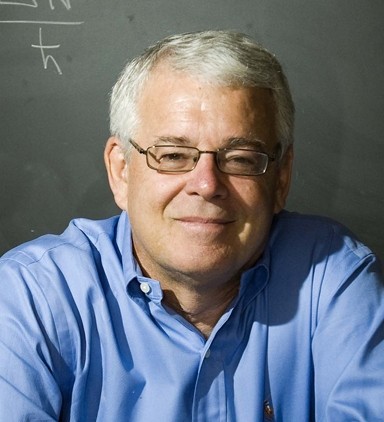
Allan H. MacDonald was born in Antigonish, Nova Scotia, where he spent his early years. He earned his BSc degree from St. Francis Xavier University in 1973. He earned his MSc and PhD degrees in physics from the University of Toronto in 1974 and 1978. He spent several years as a member of the research staff of the National Research Council of Canada before becoming a faculty member at Indiana University in the U.S., where he spent over a decade. In 2000 he joined the faculty of the University of Texas at Austin, where he holds the Sid W. Richardson Chair in Physics. Professor MacDonald’s contributions to the theory of condensed matter physics have spanned many topics, including electronic structure theory, the quantum Hall effect, magnetism, and superconductivity. He is a member of the American Academy of Arts and Sciences and the U.S. National Academy of Sciences and was awarded the Herzberg Medal (1987), the Buckley Prize in Condensed Matter Physics (2007), and the Ernst Mach Honorary Medal (2012). He recently received the 2020 Wolf Prize in Physics for his ground-breaking work in a field known as twistronics. In 2011 he predicted that a small rotation to a ”magic“ relative orientation angle would covert graphene bilayers from weakly interacting Fermi liquids to tunable strongly correlated electronic states. A rapidly expanding field (twistronics) with an impressive range of potential applications has grown from this observation.
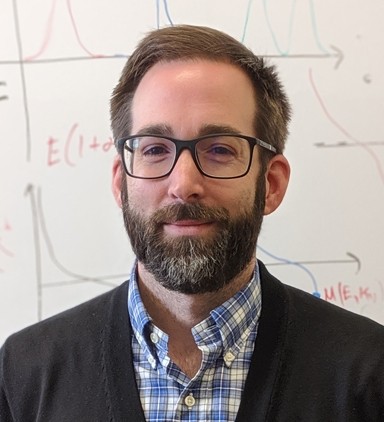
Jesse Maassen received B.Eng. and MASc degrees in engineering physics from the École Polytechnique de Montréal in 2006. He obtained a PhD in physics from McGill University in 2011 working on first-principles simulations of nanoelectronic devices. During 2012-2015, Dr. Maassen was a postdoctoral fellow in the Electrical Engineering Department at Purdue University. Since 2016, he has been an assistant professor of physics at Dalhousie University. His research interests focus on exploring novel materials and devices, using predictive first-principles modeling, with an emphasis on electro-thermal transport.

